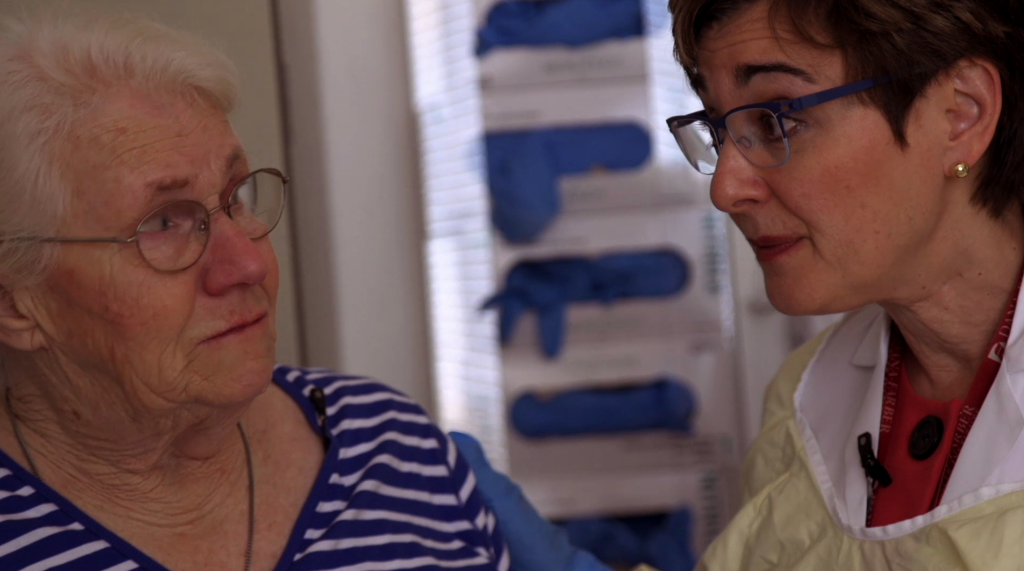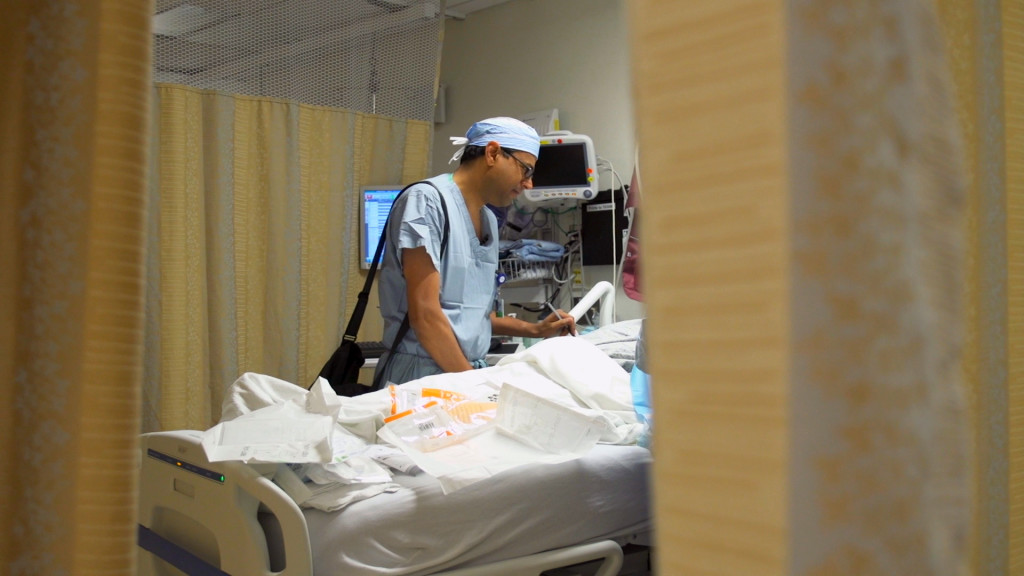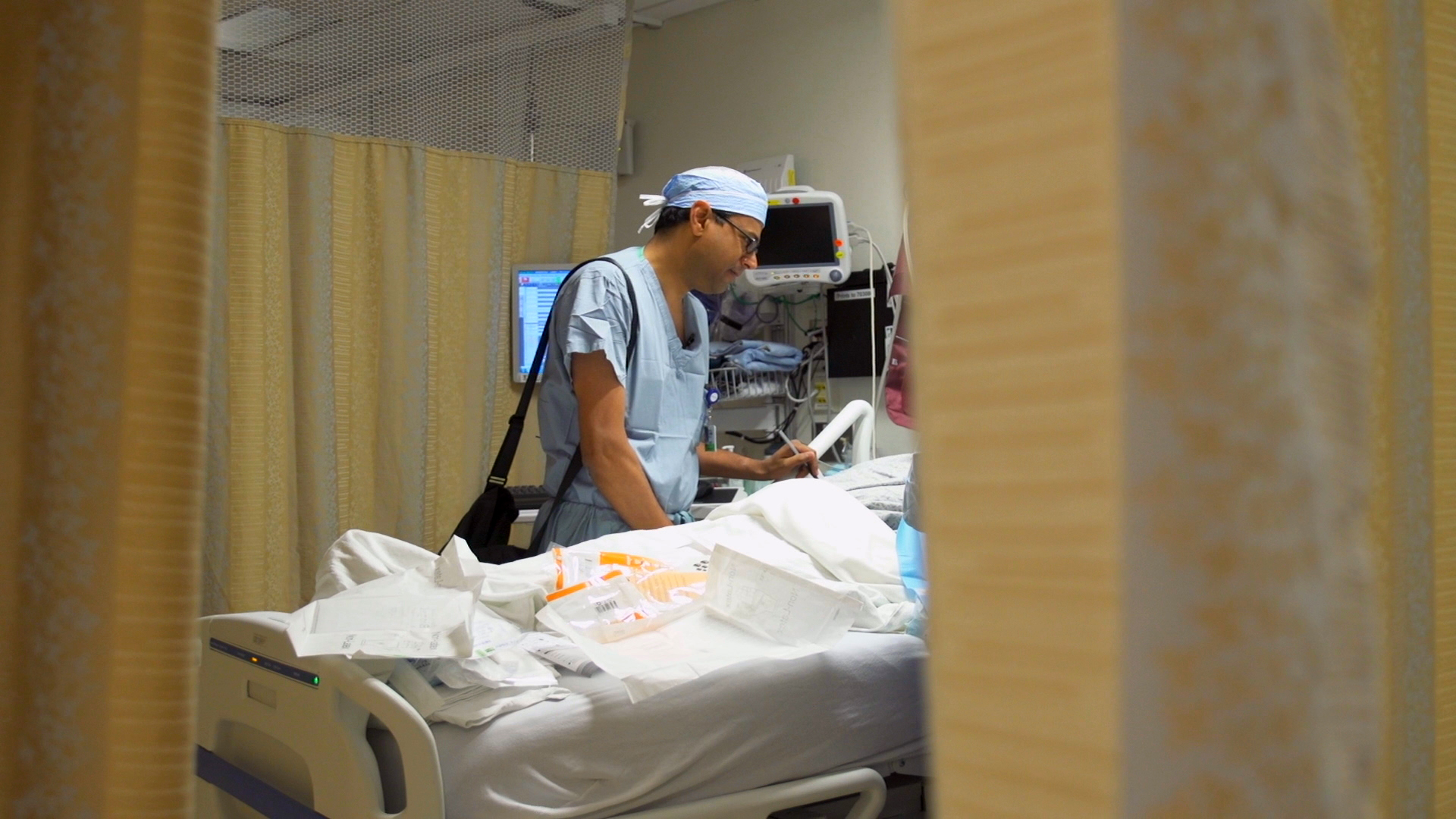“It’s Very Hard to Come to the Realization That You’re Dying”

February 13, 2015
Share
Doctors who need to break the worst possible news to patients don’t just have to overcome their own discomfort about talking about death. They must also overcome the fact that some patients and loved ones aren’t prepared to accept the news.
“Frequently, as an emergency surgeon, I’m meeting somebody for the first time and they have no idea they could die from their disease,” explains Dr. Zara Cooper, an emergency surgeon with palliative care training.
One of her patients at Brigham and Women’s Hospital in Boston, Clyde Earle, had been undergoing treatment for advanced cancer for a year. He and his newlywed wife, Audrey, believed he had many more months to live, but it soon became clear he did not.
Cooper started the end-of-life conversation. But as Earle’s condition worsened, she brought in Dr. Kathy Selvaggi, a senior palliative care physician who specializes in helping patients who are near death.
Our short film, below, shows how Selvaggi was able to gently but clearly convey to Audrey that her husband would not be able to leave the hospital. It offers a rare look at how physicians like Selvaggi manage to convey painful truths.
“It is a process,” said Selvaggi. “And I think it is very hard to come to the realization that you’re dying.”
Watch the film:
Related Documentaries
Latest Documentaries
Related Stories
Related Stories
Explore
Policies
Teacher Center
Funding for FRONTLINE is provided through the support of PBS viewers and by the Corporation for Public Broadcasting, with major support from Ford Foundation. Additional funding is provided the Abrams Foundation, Park Foundation, John D. and Catherine T. MacArthur Foundation, Heising-Simons Foundation, and the FRONTLINE Trust, with major support from Jon and Jo Ann Hagler on behalf of the Jon L. Hagler Foundation, and additional support from Koo and Patricia Yuen. FRONTLINE is a registered trademark of WGBH Educational Foundation. Web Site Copyright ©1995-2025 WGBH Educational Foundation. PBS is a 501(c)(3) not-for-profit organization.





















